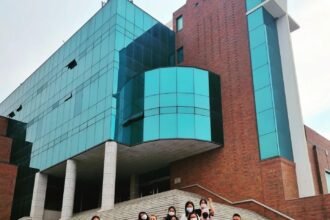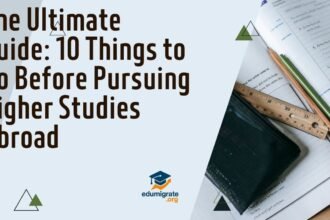For international students planning to study in Australia between 2024 and 2025, understanding the various living expenses is crucial for effective budgeting. Costs can fluctuate considerably based on your chosen city, personal lifestyle, and individual circumstances. This detailed guide offers a comprehensive overview to help you plan your finances efficiently.
🏠 Accommodation: Your Largest Expense
Accommodation typically represents the most significant portion of an international student’s budget. Monthly costs vary widely depending on the type of housing and its location within a city:
- Shared Rental (Room in a shared house/apartment): AUD 95–215 per week
- On-campus Housing: AUD 110–280 per week
- Homestay (Living with a local family): AUD 235–325 per week
- Purpose-Built Student Accommodation (PBSA – private student dorms): AUD 250–500+ per week (often includes utilities, furnished rooms, and amenities)
- Private Rental (One-bedroom apartment): AUD 1,770–3,300 per month
City Impact: Major metropolitan areas like Sydney and Melbourne tend to be at the higher end of this cost spectrum. In contrast, cities such as Adelaide, Perth, and regional centres generally offer more affordable housing options.
🍽️ Food and Groceries: Daily Sustenanc
Your monthly food budget can range from AUD 560 to AUD 1,120, influenced by your dietary habits and whether you frequently dine out. Preparing meals at home is consistently the most economical choice. It’s important to acknowledge that some international students have reported financial strain in affording fresh, healthy food, occasionally leading to reliance on food relief initiatives. This highlights the importance of meticulous budgeting for essentials.
🚍 Transportation: Getting Around
Public transportation is a popular and efficient way for students to travel in Australia:
- Monthly Public Transport Pass: AUD 120–200, with costs varying by city.
- Student Concessions: Crucially, some states (e.g., Victoria, Queensland, South Australia) offer concession fares for international students on public transport, which can significantly reduce travel costs. It’s vital to check the specific policies for the state you plan to study in, as not all states (e.g., NSW) extend full concessions to all international students.
- Proximity to Campus: Choosing accommodation closer to your university can minimize transportation expenses.
🏥 Health Insurance: Mandatory Overseas Student Health Cover (OSHC)
All international students in Australia are legally required to hold Overseas Student Health Cover (OSHC) for the entire duration of their student visa.
- Annual OSHC Cost: AUD 609–3,438, depending on your chosen coverage level, provider (e.g., Bupa, Medibank, Allianz Care Australia, NIB), and the length of your stay.
- Coverage: OSHC generally covers most doctor visits (GP), some hospital treatments, and limited prescription medications. It typically does not cover pre-existing conditions or comprehensive dental and optical services, which may incur additional out-of-pocket expenses. Ensure your policy covers your full visa period.
💼 Employment Opportunities: Earning While Learning
International students on a student visa can legally work for up to 20 hours per week during academic semesters and full-time during scheduled university breaks.
- Tax File Number (TFN): You will need a Tax File Number (TFN) to be legally employed in Australia.
- Minimum Wage: Australia has a high minimum wage, which can help significantly with living costs. As of July 2024, the national minimum wage is approximately AUD 24.10 per hour for adults, though this is subject to annual review.
- Common Jobs: Popular part-time roles include retail, hospitality, tutoring, administration, and on-campus positions. Income earned from employment is taxable.
💸 Budget Summary: Estimated Monthly Costs
Here’s an estimated monthly budget for an international student. Remember, these are averages, and your actual expenses may vary based on your city and lifestyle.
| Expense Category | Estimated Monthly Cost (AUD) |
|---|---|
| Accommodation | 1,770–3,300 |
| Food and Groceries | 560–1,120 |
| Transportation | 120–200 |
| Health Insurance (prorated) | 50–290 |
| Miscellaneous & Personal | 200–400 |
| Total Estimated Monthly Cost | 2,700–5,310 |
💰 Initial Setup Costs (Crucial Upfront Expenses)
Beyond your monthly budget, be prepared for significant upfront costs upon arrival, often required before you even start your first month of study:
- Rental Bond (Security Deposit): Typically equivalent to 4 weeks’ rent, which is paid upfront and held by a government authority.
- First Month’s Rent: Paid in advance when securing accommodation.
- Flight Tickets: Cost of travel to Australia.
- Visa Application Fees: (Paid before arrival, but a significant cost).
- Initial Groceries & Essentials: Stocking up your new accommodation.
- Furnishing Costs: If your chosen accommodation is unfurnished, you’ll need to budget for furniture and appliances.
- Overall Initial Setup: These initial expenses can easily range from AUD 3,000 to AUD 8,000+ depending on your city and accommodation choice.
📚 Real-Life Experiences and Suppor
It’s important to be realistic about the financial challenges some international students face. Reports, such as those from the University of Queensland where hundreds of students relied on food relief programs, underscore the pressures of the high cost of living.
Tips for Managing Expenses:
- Create a Detailed Budget: Meticulously track your income and expenses to identify saving opportunities.
- Seek Part-Time Work: Look for on-campus jobs or roles with flexible hours that fit your study schedule.
- Utilize Student Discounts: Leverage student IDs for concessions on public transportation (where applicable), entertainment, and retail.
- Consider Shared Accommodation: Opting for shared housing is often the most effective way to significantly reduce rent costs.
- Prioritize Meal Planning: Cooking at home and planning your meals can lead to substantial savings on food.
- University Support: Remember that most universities offer financial aid offices or student support services that can provide advice, emergency assistance, or connections to external resources if you encounter financial hardship.
Thorough planning and diligent budgeting are paramount for ensuring a comfortable, sustainable, and successful student life experience in Australia.






